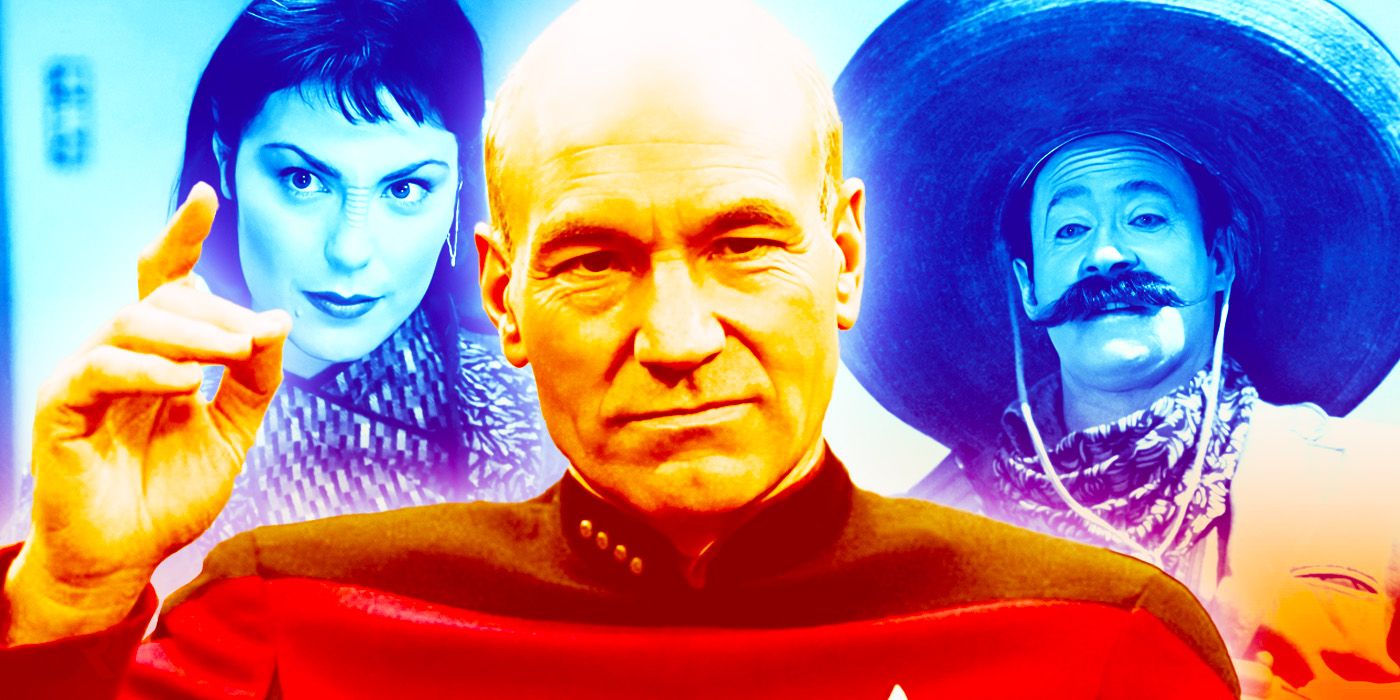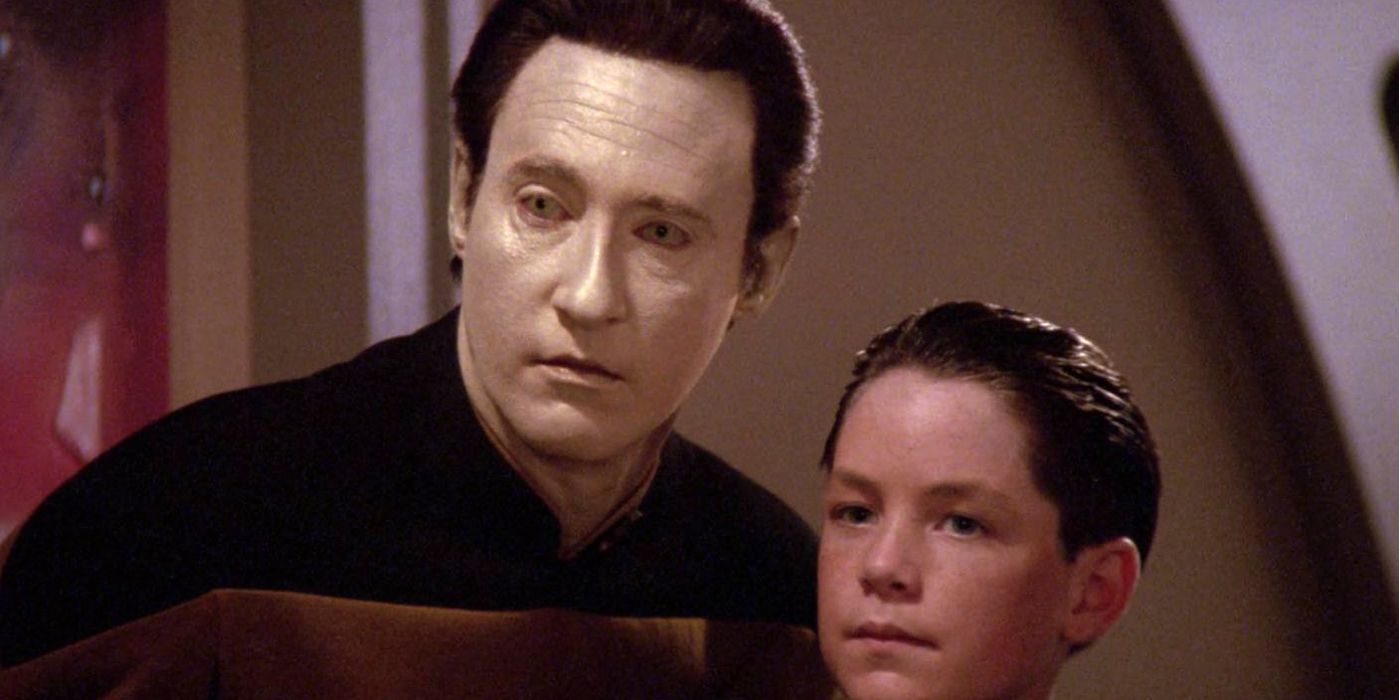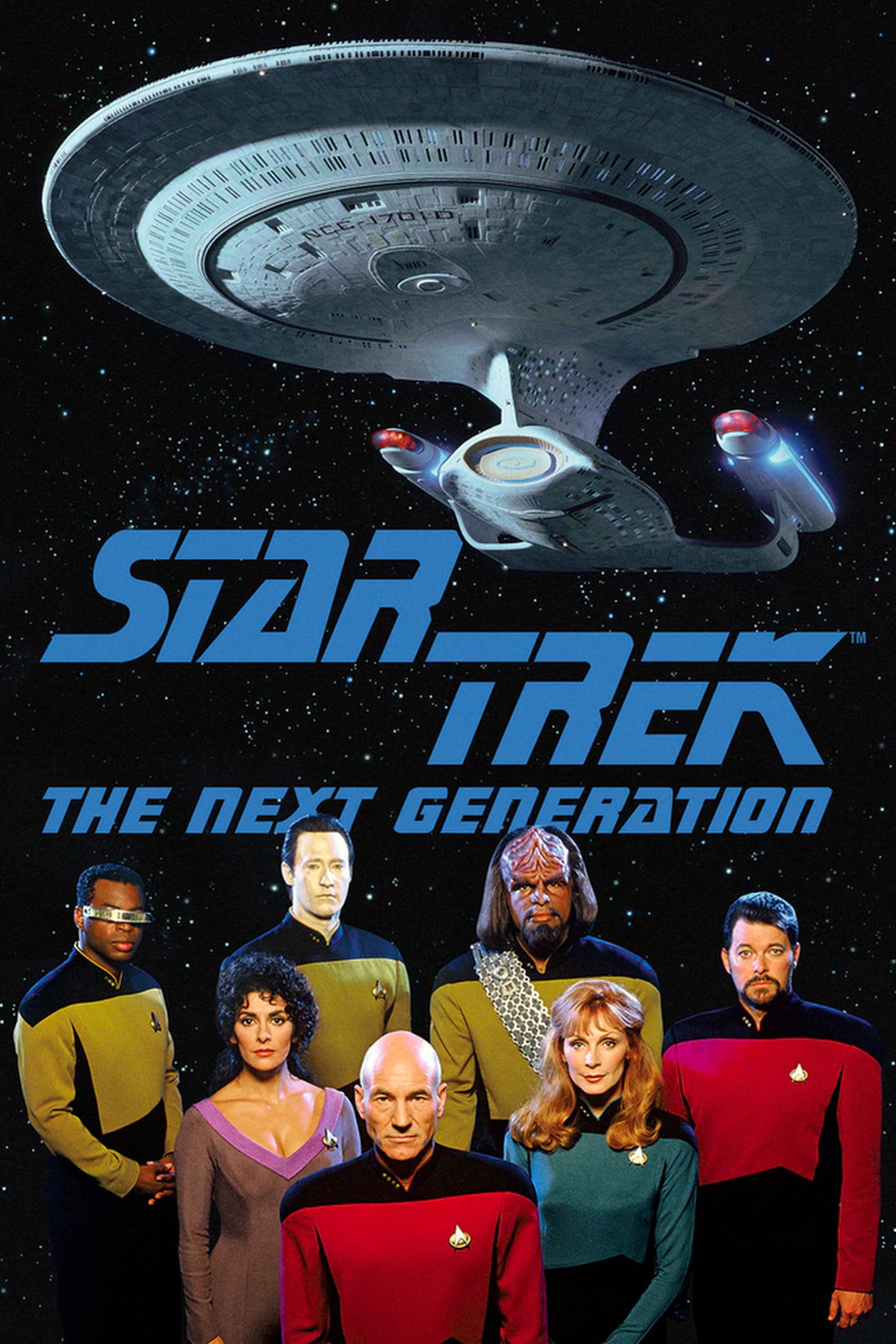Patrick Stewart directed five episodes of Star Trek: The Next Generation of wildly different genres, from romantic comedy to political thriller.

Summary
- Patrick Stewart’s directorial episodes of “Star Trek: The Next Generation” focused heavily on the character of Lt. Commander Data, reflecting his admiration for actor Brent Spiner.
- While “Hero Worship” lacked standout moments, it showcased strong performances and Stewart’s ability to create the right circumstances for his actors.
- “A Fistful of Datas” demonstrated Stewart’s comedic skills as a director and his personal connection to exploring complicated relationships, like that of Worf and his son Alexander.
As well as playing Captain Jean-Luc Picard, Patrick Stewart directed five episodes of Star Trek: The Next Generation of varying degrees of quality. The five episodes of TNG are Stewart’s only directing credits, in contrast to his co-star Jonathan Frakes, who has become a prolific director of film and television. Stewart got a great deal of support from Frakes during his time in the director’s chair, and still holds his TNG Number One in high esteem. Looking at the five TNG episodes that Patrick Stewart directed, it’s interesting to see links between their themes and elements that would later recur in Star Trek: Picard decades later.
Interestingly, four out of the five Star Trek: The Next Generation episodes directed by Patrick Stewart focused on the character of Lt. Commander Data (Brent Spiner). The interest that Stewart clearly had in the character of Data and admiration for Brent Spiner as an actor clearly carried over into Star Trek: Picard. Spiner played multiple roles across all three seasons of Picard, culiminating in the return of Data in the TNG reunion season. However, Data isn’t the only recurring theme in Stewart’s episodes that would later factor into Star Trek: Picard.
5 Hero Worship
Star Trek: The Next Generation Season 5, Episode 11

Patrick Stewart’s sophomoric turn in the director’s chair, Star Trek: The Next Generation season 5, episode 11, “Hero Worship”, is his least remarkable entry. However, that’s not to say that “Hero Worship” is without directorial merit. There are some fantastic performances in the episode from series regulars Brent Spiner and Marina Sirtis. A great director creates the right circumstances for their actors to do their best work, and Stewart certainly succeeds here. The story of Timothy (Joshua Harris) finding solace in imitating an emotionless android to avoid confronting the grief of losing his parents is a strong one, and Stewart clearly responds well to it as a director.
Compared to Patrick Stewart’s other directorial efforts, however, “Hero Worship” doesn’t live long in the memory. While the story is strong, and the cast are on their game, unfortunately, it doesn’t have many standout memorable moments. Timothy’s imitations of Data are sweet, but don’t amount to much. It’s an emotional character piece, with powerful performances, but it lacks the dazzling visuals or thrilling pacing of Patrick Stewart’s other Star Trek: The Next Generation episodes.
4 In Theory
Star Trek: The Next Generation Season 4, Episode 25
“In Theory” featured one of the most unsettling deaths in Star Trek history, the fatal phasing of Lt. Van Mayter (Georgina Shore) between floors. It’s the standout moment in Patrick Stewart’s debut episode as director, and has become one of Star Trek: The Next Generation‘s most memorable images. The story itself is less memorable, focusing on Data’s attempts to pursue a romantic relationship with Lt. Jenna D’Sora (Michele Scarabelli). Some of the relationship advice Data receives from his fellow crew may not have aged very well, but it’s still a charming episode that gives Brent Spiner an opportunity to explore new facets of Data’s character.
If anything, the b-story about the USS Enterprise-D investigating distortions caused by dark matter is more interesting. What’s great about “In Theory” is that Stewart seems just as comfortable realizing bizarre imagery like Van’s death as he is with more intimate character interactions. It’s easy to see why a theater veteran like Patrick Stewart was drawn to the interplay between Data and Jenna for his directorial debut on Star Trek: The Next Generation.
Patrick Stewart and Brent Spiner are great friends in real life, and Spiner was Best Man at Stewart’s wedding to Star Trek: Voyager producer Wendy Neuss in 2000.
3 A Fistful of Datas
Star Trek: The Next Generation, Season 6, Episode 8
“A Fistful of Datas” is one of Star Trek‘s best comedy episodes, perhaps reflecting how Patrick Stewart had mellowed in the later years of Star Trek: The Next Generation. In his autobiography Making it So, the actor reflected that he could be “a severe bastard” in the early days of TNG. As with many of Patrick Stewart’s episodes as director, “A Fistful of Datas” gives Brent Spiner plenty to do as an actor. When Data’s consciousness is accidentally grafted onto the holodeck systems, he becomes every character in the Wild West simulation experienced by Counselor Deanna Troi (Marina Sirtis) Lt. Worf (Michael Dorn) and his son Alexander Rozhenko (Brian Bonsall).
Given the complicated relationship between Worf and his son Alexander, it’s interesting that Patrick Stewart directed “A Fistful of Datas.” Stewart had a famously complicated relationship with his own father, which became a big part of Picard’s character in Star Trek: The Next Generation and Star Trek: Picard. It’s tempting to see Stewart being drawn to the story of Worf and Alexander working through their own differences as a means to understand his own upbringing. After all, many directors are drawn to work that they have a personal connection to.
2 Phantasms
Star Trek: The Next Generation, Season 7, Episode 6
“Phantasms” is perhaps the most ambitious of the Star Trek: The Next Generation episodes directed by Patrick Stewart. As Data tries to solve the mystery of his vivid and disturbing dreams, Patrick Stewart directs an unnerving episode of TNG. Building on the memorable death of Van in “In Theory”, Patrick Stewart goes all out in “Phantasms”, giving viewers the memorably weird image of Counselor Troi as a “cellular peptide cake with mint frosting.” The ringing phone inside Data’s chest cavity is another memorable image that continues to pop up on social media to this day.
Patrick Stewart also shows that he’s a good director of unnerving horror, too, particularly in the scene where Data attacks Troi in the lift. Ultimately, it’s revealed that the dreams aren’t turning Data into a slasher, they’re a warning to him to purge the Enterprise of interphasic parasites. In an episode that juggles dream logic, outlandish visuals, genuine horror, and laugh-out-loud comedy, it’s a testament to Patrick Stewart’s skills as a director that he keeps the tone of “Phantasms” consistent.
The Troi cake was originally supposed to be life-size, complete with arms and legs, but director Patrick Stewart felt that it could be too disturbing for younger viewers.
1 Preemptive Strike
Star Trek: The Next Generation, Season 7, Episode 24
“Preemptive Strike” is the best Star Trek: The Next Generation episode directed by Patrick Stewart. It’s a gripping thriller, and a heartbreaking story of betrayal as Lt. Ro Laren (Michelle Forbes) turns her back on her mentor, Captain Picard, for Star Trek‘s Maquis. Stewart directs the episode with a great deal of sympathy for the Maquis cause, depicting the cruelty of barbarism of the Cardassians. The way that both Forbes and Frakes play their final scene together is full of ambiguity, as Riker seems to sympathize with Ro’s choice, while Ro is conflicted about betraying her mentor. They’re strong acting choices that were surely inspired by Stewart’s direction.
“Preemptive Strike” was the penultimate episode of Star Trek: The Next Generation before the two-part finale, “All Good Things.” The events of the episode have a huge impact on Picard, who will resent Ro for over 20 years until she returns in Star Trek: Picard. It’s down to Patrick Stewart’s direction that this classic episode of Star Trek: The Next Generation played such a key role in Star Trek: Picard‘s final season.

Star Trek: The Next Generation
Star Trek: The Next Generation is the third installment in the sci-fi franchise and follows the adventures of Captain Jean-Luc Picard and the crew members of the USS Enterprise. Set around one hundred years after the original series, Picard and his crew travel through the galaxy in largely self-contained episodes exploring the crew dynamics and their own political discourse. The series also had several overarching plots that would develop over the course of the isolated episodes, with four films released in tandem with the series to further some of these story elements.





